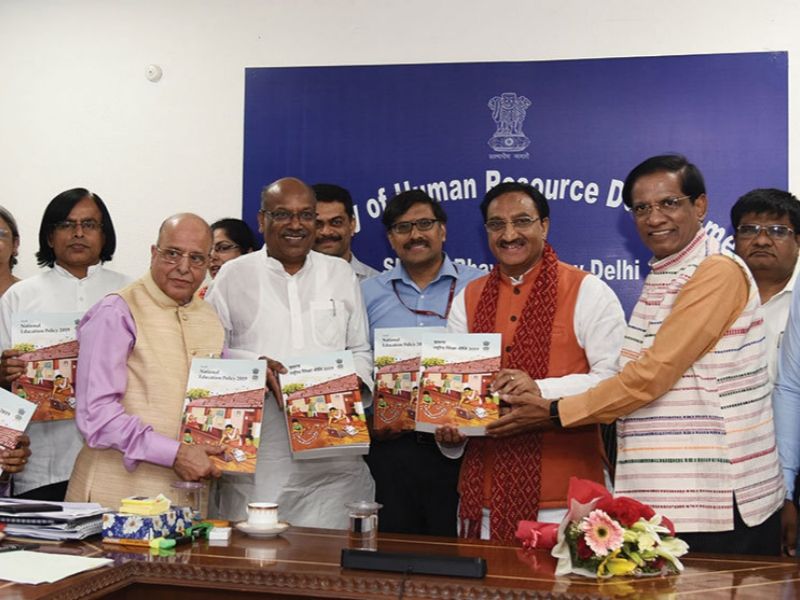According to the draft National Education Policy (NEP) committee, the MHRD has decided to revamp the evaluation process by removing school examinations from 2021. As per the new evaluation module, class-based assessments will follow ‘5-3-3-4’ structure, stated an HRD official.
The government is aiming to finalise the new NEP by October 2020 and to implement the policies by 2021. An official told The Indian Express, “We will soon notify the boards for their recommendations on the new exam structure recommended by the committee. After receiving suggestions from the boards and education experts, the ministry will consider to junk 10+2 format, and to proceed on the proposed evaluation process from 2021.”
Earlier in June, the draft NEP committee recommended the 5-3-3-4 design which includes five years of foundation stage – three years of pre-primary school and classes one and two), three years of preparatory stage – classes three to five, three years of middle stage – classes six to eight, and four years of secondary stage – classes 9 to 12.
The proposed new draft is based on the lines of international school-based evaluation process that assesses a student on the basis of their class-based performance. The committee stated that the current board examinations concentrates only on a few subjects without providing scope to learn in a formative manner that causes stress among students.
The committee also recommended that to track students’ progress, the draft policy proposes State Census Examinations in classes three, five and eight. Restructuring the board examinations will help test core concepts, skills and higher-order capacities suggests the committee. The board examinations will be on a range of subjects and students can choose their subjects, and which semester they want to take these board exams.
The ministry is also considering extending the ages of free learning under the Right to Education (RTE) act from 14 years to 18 years. “As proposed by the draft NEP committee, the ministry is working to include early childhood education and secondary school education under the ambit of the RTE Act. This would extend the coverage of the Act to all children between the ages of three to 18 years,” the official mentioned.
Source: Indian Express
